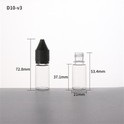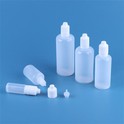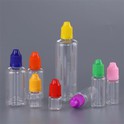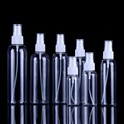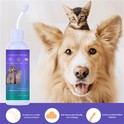They are calling for more careful recycling methods to remove the potentially harmful chemicals.
The thermoplastic PET is the third most widely used type of plastic in food packaging, with one of its most popular end uses in single-use drinks bottles. Such bottles are also one of the most commonly found forms of plastic litter, leading to a number of initiatives to increase levels of PET recycling. A recent EU directive called for PET bottles to contain at least 30% recycled content by 2030.
But PET is also known for being the source of a number of potential chemical contaminants, including endocrine disruptors such as Bisphenol A, which can cause reproductive disorders, cardiovascular problems and cancer, among other ill effects.
The researchers reviewed 91 studies from around the world looking at chemical contamination from plastic bottles. Dr Eleni Iacovidou, a lecturer from Brunel’s centre for pollution research and policy, who led the study, said: “We found these chemicals can come from various sources, such as the catalysts and additives used during production and degradation during PET production, and degradation that can happen across a bottle’s lifecycle.”

